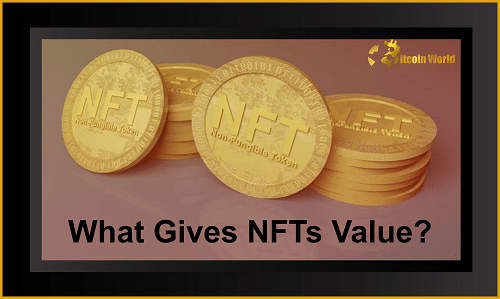Definitions : A non-fungible token (NFT) is a token that is issued on a blockchain to represent a special asset, such as a piece of real estate, art, music, or writing. Because each NFT is a distinct digital asset with a distinct identifier, they are not fungible.
No matter how similar two NFTs may appear, they cannot be used interchangeably. In contrast to an NFT, one bitcoin is equivalent to and marketable for another bitcoin. Because of this, NFT technology is employed to produce ownership and authenticity proof on the blockchain. NFTs can be tokenized representations of physical things or whole digital assets like play-to-earn gaming items and metaverse land.
How NFTs Get Their Values
The market’s supply and demand determine the value of an NFT. When an NFT is made as a representation of a physical asset, evaluation is typically simpler. However, the majority of NFTs only exist digitally, on-chain.
Each NFT unit may have a distinct rarity, and each NFT collection has a unique supply. However, a number of additional elements can impact how much an NFT is valued. For instance, limited series NFTs with particular use cases typically have higher value. The demand for NFTs may also be influenced by the founding team, artists, and the local community.
In other words, an NFT’s value may depend on who produced it, how much it is worth in play-to-win games, or even just how the community and market feel about it.
There are many examples of NFT initiatives that have been successful, but there are just as many that have failed. Before trading or investing in NFTs, make sure to DYOR and refrain from using funds that you cannot afford to lose.
Disclaimer: The information provided is not trading advice, Bitcoinworld.co.in holds no liability for any investments made based on the information provided on this page. We strongly recommend independent research and/or consultation with a qualified professional before making any investment decisions.




